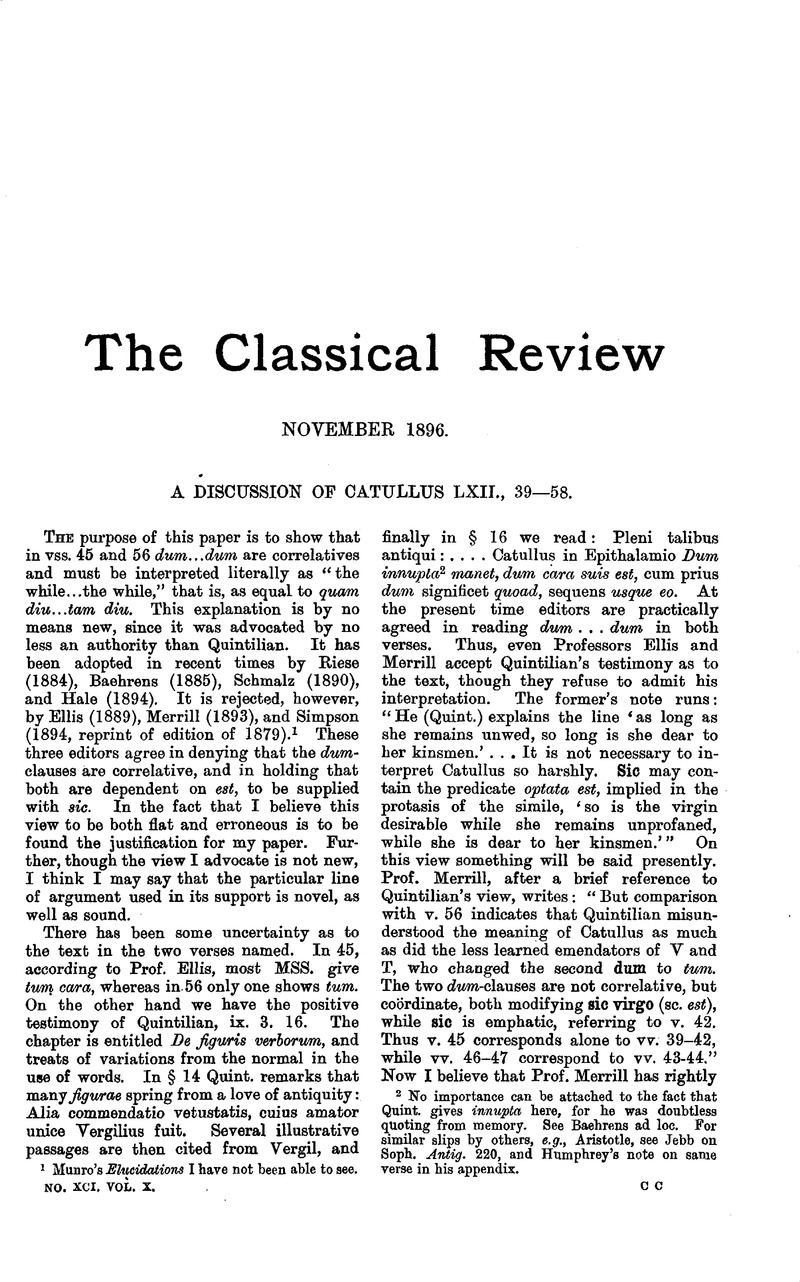No CrossRef data available.
Article contents
A discussion of Catullus lxii, 39—58
Published online by Cambridge University Press: 27 October 2009
Abstract

- Type
- Review Article
- Information
- Copyright
- Copyright © The Classical Association 1896
References
page 365 note 1 Munro's Elucidations I have not been able to see. NO. XCI. VOL. X.
page 365 note 2 No importance can be attached to the fact that Quint, gives innupta here, for he was doubtless quoting from memory. See Baehrens ad loc. For similar slips by others, e.g., Aristotle, see Jebb on Soph. Antig. 220, and Humphrey's note on same verse in his appendix.
page 366 note 1 Prof. Ellis makes what I conceive to be essentially the same mistake, for in speaking of the text in 45 he says (p. 248, footnote) ‘More decisive (sc. than MSS. evidence or Quintilian's statement) is the parallel verse 56 … as K. P. Schulze observes: for here dum inculta is given by all MSS except Thuan.’ I hold it an error to attempt to extract from v. 56 any evidence as to the text or meaning of 45.
page 366 note 2 Riese (p. 132) conjectures, though without supplying proof, that the first strophe and antistrophe contained six verses each, the second eight each, and the third ten each.
page 366 note 3 See Riesc and Baehrens on v. 41.
page 366 note 4 On the structure of this poem see further Carl Ziwsa, Die Eurhythmische Technik des Catullus, II. Theil, pp. 11, 12. (Wien, 1883).Google Scholar
367 1 I regard suis in 45 as merely a variation for pueris et puellis virtually contained in 42, 44, and 47. Both expressions merely = ‘acquaintances,’ the flower and the girl being dear, or not, as the case may be, to those who are aware of their existence.
367 2 Prof. F. D. Allen has suggested to me what is, so far as I know, wholly novel, namely, that a strong proof of the correctness of the view held in this paper is the very v. 56 which has caused most editors so much trouble. I confess that this view appeals to me with seme force when I take into account the practical impossibility of gathering any predicate at all to sic virgo in v. 56 from the protasis of this simile, yet I am very far from admitting that it affects in any particular the correctness of my main argument, as based on the amoebean character of our passage.




